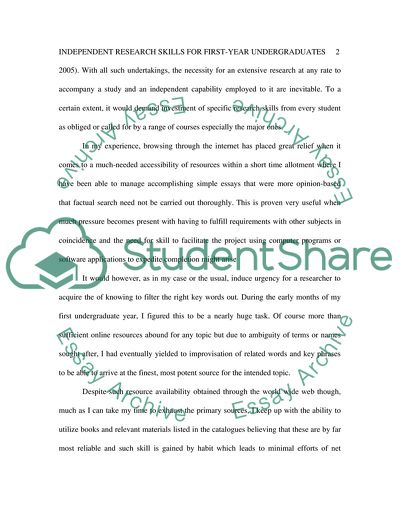Cite this document
(Independent Research Skills for First-Year Undergraduates Essay, n.d.)
Independent Research Skills for First-Year Undergraduates Essay. Retrieved from https://studentshare.org/education/1741426-what-independent-research-skills-do-undergraduates-need-in-their-first-year-at-university-reflect-on-your-own-experience-and-illustrate-your-answer-with-exmples
Independent Research Skills for First-Year Undergraduates Essay. Retrieved from https://studentshare.org/education/1741426-what-independent-research-skills-do-undergraduates-need-in-their-first-year-at-university-reflect-on-your-own-experience-and-illustrate-your-answer-with-exmples
(Independent Research Skills for First-Year Undergraduates Essay)
Independent Research Skills for First-Year Undergraduates Essay. https://studentshare.org/education/1741426-what-independent-research-skills-do-undergraduates-need-in-their-first-year-at-university-reflect-on-your-own-experience-and-illustrate-your-answer-with-exmples.
Independent Research Skills for First-Year Undergraduates Essay. https://studentshare.org/education/1741426-what-independent-research-skills-do-undergraduates-need-in-their-first-year-at-university-reflect-on-your-own-experience-and-illustrate-your-answer-with-exmples.
“Independent Research Skills for First-Year Undergraduates Essay”. https://studentshare.org/education/1741426-what-independent-research-skills-do-undergraduates-need-in-their-first-year-at-university-reflect-on-your-own-experience-and-illustrate-your-answer-with-exmples.


